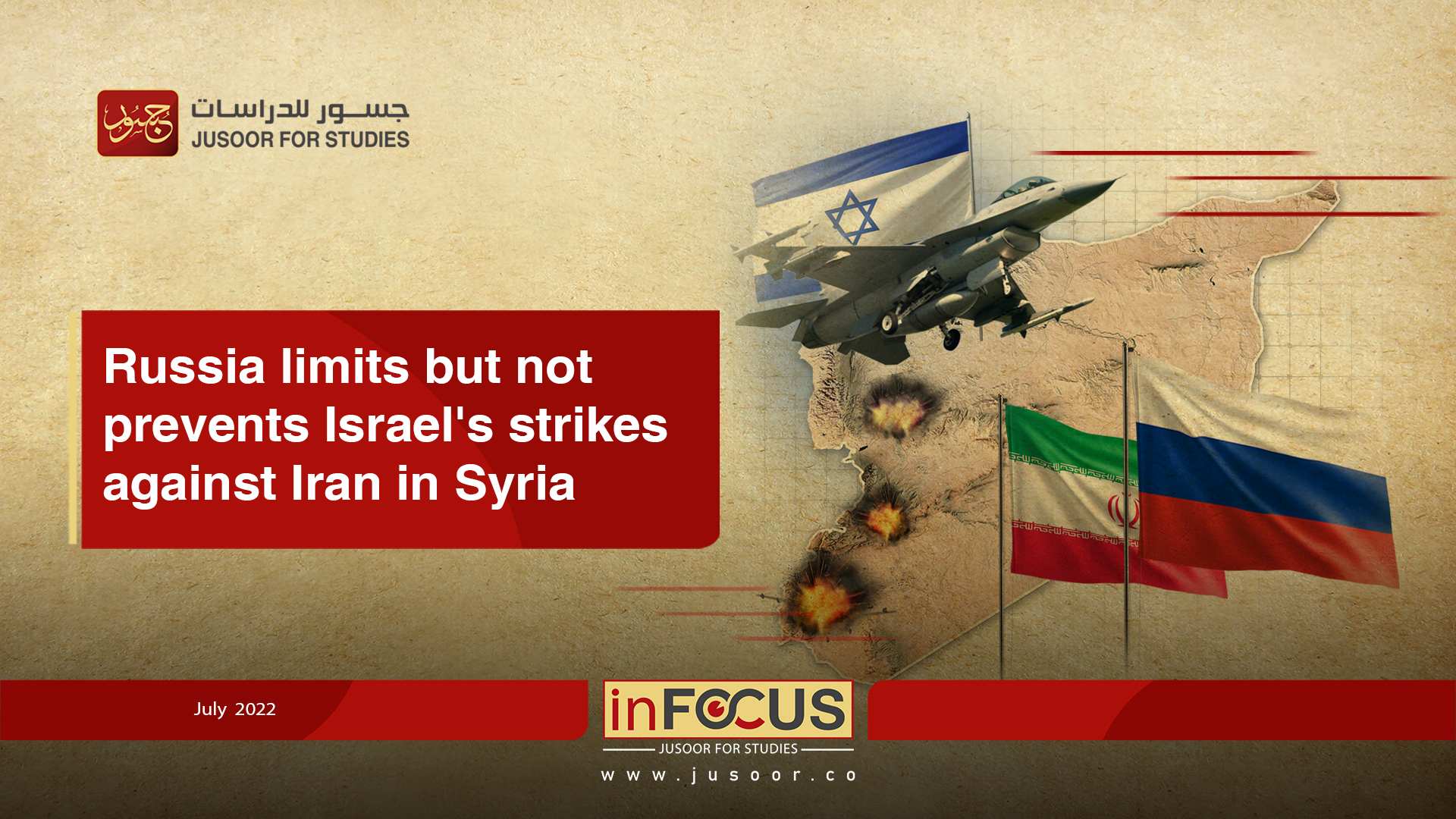Russia limits but not prevents Israel's strikes against Iran in Syria
Russia limits but not prevents Israel's strikes against Iran in Syria
The Russia-Israeli rows over the war of Ukraine were reflected in the coordination between the two parties in Syria, where Russia imposed clear restrictions on the movement of the Israeli Air Force in an unprecedented manner since the end of 2015. This development came in line with the activiation of the S300 air defense system months ago, according to statements by the Israeli Defense Minister, Benny Gantz, late July 2022.
As a result of these restrictions, Israel has resorted to special tactics in order to ensure the sustainability of conducting preventive strikes aim at reducing security threats, coming from Syria. Israel, for this purpose, has increased its reliance on "ground-to-ground" missile strikes since February 2022, reaching 8 ones compared to 8 air strikes. However, many of the sorties carried out by Israel, were launched through either the Lebanese or the Al-Tanf base airspace, in order to avoid any potential clash with the Russian air forces.
The Russian-Israeli dispute began since the latter issued the first public condemnation of Russia's invasion of Ukraine in February 2022. Things went worse when the Russian ministry of justice sent an official notice to the Jewish Agency for Israel, Sohnut, in Moscow demanding its closure at the end of July. Later on, Israel threatened to give up pursuing the policy of neutrality and said it is ready to provide support for Ukraine.
While the dispute between the two parties restricted the movement of the Israeli Air Force, it allowed Iran to expand its margin of activity in Syria further, especially in the south of the country and near the 1974 ceasefire line. Iran also worked on transferring advanced precision guided missiles to increase the accuracy of its arsenal in Syria.
Yet, Russia and Israel still keep the line of communication open for military coordination, as Tel Aviv notifies Moscow ahead of any air attacks it plans to carry out, including the targeting of an Iranian missile shipment that arrived at Damascus International Airport on June 10, 2022. Such a notification allowed the withdrawal of watchtower personnel and some forces associated with Moscow before the attack.
In fact, it does not seem that Russia wants to completely prevent Israeli attacks in Syria, it rather merely plans to restrict Tel Aviv's military actions as a dynamic for putting pressure on the latter in order to modify its positions and prevent it from adopting any policy that leads to providing support to Ukraine. In a dynamic as such, Moscow could kill two birds with one stone. It can maintain its role as a mediator between international actors in Syria, and at the same time the continuation of the Israeli attacks, even though at a minimum allows Russia to control the movements of Iranian militias in Syria.
This ensures, however, that Israel will not often pursue a policy of escalation against Russia in Syria, it rather will resort to diplomatic channels in order to overcome obstacles to its security operations in Syria and to discuss the fate of the Russian branch of the Jewish Agency. This reflects the openness and acceptance found in the regional countries of Russia's role as a guarantor in order to obtain political and security gains and never to mention avoiding any direct confrontation with Iran.








